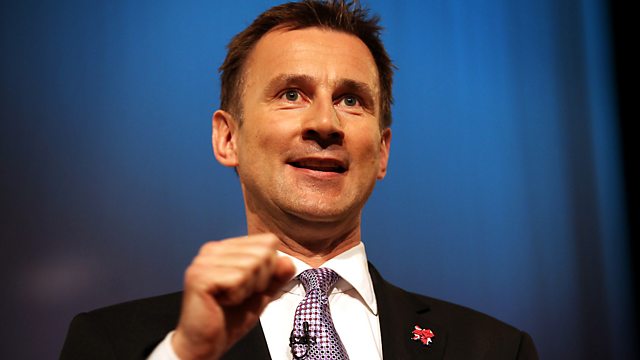19/01/2011
The latest developments in the News of the World phone hacking case; Jeremy Hunt's local TV plans; how social media mobilises protesters and daily newspaper circulation falls.
As more celebrities threaten to sue the News of the World over alleged phone hacking, Steve Hewlett hears about the latest developments in the case. Guardian columnist Roy Greenslade explains how details that have emerged in recent weeks throw light on the extent of the problem and discusses what the revelations mean for the News of the World.
The Culture Secretary Jeremy Hunt has outlined his plans for the future of local television in a speech at the Oxford Media Convention. Steve Hewlett talks to Jeremy Hunt about his plans to make local television financially viable. Professor Patrick Barwise from London Business School explains why he thinks the plans will result in low viewing, low revenue and have minimal impact on local democracy.
The powers of social networking sites like Twitter and Facebook have been credited by some for shaping events in Tunisia in the last week. A tweeter and blogger in Tunis tells Steve Hewlett how social networks mobilised demonstrators. Evgeny Morozov, author of 'The Net Delusion', explains how, far from helping democracy, the internet often helps oppressive governments use cyberspace to stifle dissent.
The latest figures show that circulation for all national daily newspapers has fallen month on month and year on year. For some, it was a dramatic decline - circulation of The Times fell by over fourteen percent to around four hundred and fifty thousand. Roy Greenslade offers an overview of how the papers are doing and Professor Patrick Barwise explains why cutting prices might not placate advertisers.
The producer is Kathryn Takatsuki.
Last on
Broadcast
- Wed 19 Jan 2011 13:30Βι¶ΉΤΌΕΔ Radio 4
Podcast
-
![]()
The Media Show
This is the programme about a revolution in media.


